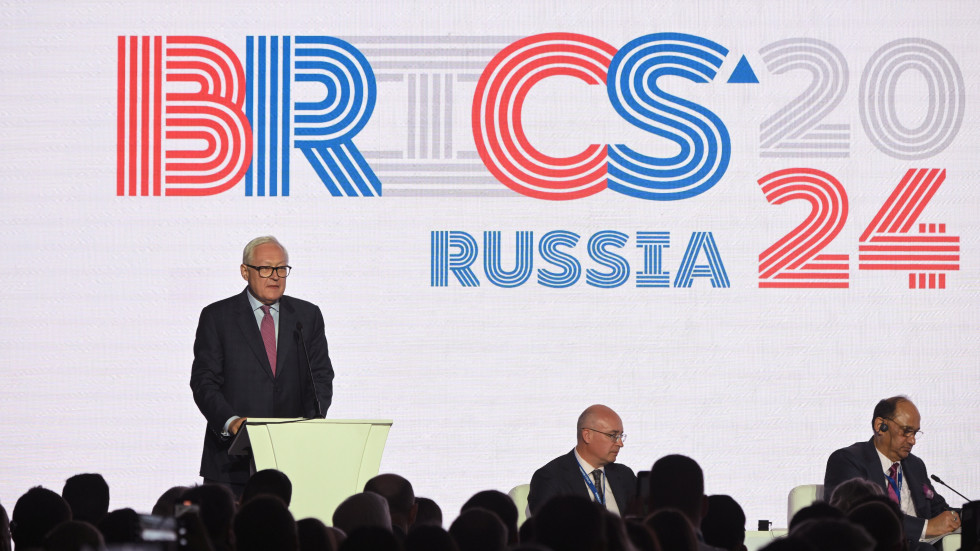The BRICS alliance, initially formed by Brazil, Russia, India, and China, has evolved significantly since its inception, now comprising nine member states and entertaining applications from numerous others. Russian Deputy Foreign Minister Sergey Ryabkov, in outlining the prerequisites for prospective members, articulated the unwavering stance that any nation aspiring to join BRICS must refrain from participating in sanctions against existing member states. This remark extends particularly towards the sanctions imposed by the United States and allied nations due to the ongoing Ukraine conflict—a situation Russia deems illegitimate. This policy reflects Moscow’s broader geopolitical objectives as the group prepares for its upcoming summit in Kazan, where the possibility of further enlargement will be discussed.
Ryabkov emphasized the significance of each member’s independent foreign policy, stressing the importance of maintaining amicable relationships within the group. One of the key points he highlighted is that aspiring members should demonstrate a commitment to a sovereign policy that aligns with BRICS’s objectives. Alongside this, he indicated that a potential member’s ability to participate in international and regional affairs holistically is crucial for integration into the bloc. The importance of not engaging in what Russia perceives as “illegitimate sanctions” is pivotal for any new entrants, reinforcing the cohesive ideology that binds existing members together.
The forthcoming summit in Kazan, which marks Russia’s role as the current chair of BRICS, will be critical not only for discussing the potential expansion of the group but also for solidifying the integration of recently admitted members. Ryabkov outlined Russia’s objective of ensuring substantial integration within the BRICS framework. The assurance of seamless collaboration among current and newly accepted members is crucial for maintaining the efficacy of the group’s initiatives and diplomatic tactics. The statement reflects a strategic move by Russia to enhance the robustness of BRICS and its global influence, even amid increasing international scrutiny.
Reports of substantial interest in joining BRICS emphasize the growing appeal of the bloc. Nations such as Algeria, Bangladesh, and Nigeria, among others, are expressing a desire to become part of this influential alliance, keen on leveraging the group’s weight in global economic and political matters. This could signal a shift in global power dynamics, as the current members collectively represent about 46% of the world’s population and over 36% of the global GDP. This composition illustrates BRICS’s potential role as a counterweight to Western-dominated international economic systems and entities.
The evolution of BRICS since its founding in 2006 has been marked by strategic inclusivity, with South Africa becoming its first new member in 2011 and the subsequent admission of countries like Egypt, Ethiopia, Iran, and the UAE in early 2024. Despite the expansion, the founders chose to retain the original acronym, emphasizing continuity and unity. The leaders of BRICS have continuously underscored the importance of consensus in decision-making, instilling a sense of collective ownership among the members while also maintaining structured governance that allows for multiple perspectives to shape the direction of the group.
In conclusion, the ongoing discussions regarding BRICS’s enlargement and the associated terms reflect the complexities of modern geopolitical relations. As the bloc grapples with the implications of burgeoning interest from various nations and the challenges posed by existing global tensions, it positions itself as an alternative forum for countries seeking to assert their sovereignty away from the influence of Western powers. Ryabkov’s remarks crystallize the essence of BRICS as a collective that prioritizes cooperation, respect for each member’s sovereignty, and a rejection of external punitive measures, ultimately aiming for a more balanced multipolar world.

